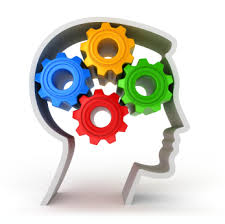Alzheimer's and Dementia
- Alzheimer's is the most common form of dementia, a general term for memory loss and other intellectual abilities serious enough to interfere with daily life.
- Alzheimer's worsens over time. Alzheimer's is a progressive disease, where dementia symptoms gradually worsen over a number of years. In its early stages, memory loss is mild, but with late-stage Alzheimer's, individuals lose the ability to carry on a conversation and respond to their environment.
Symptoms of Alzheimer's
Just like the rest of our bodies, our brains change as we age . Most of us eventually notice some slowed thinking and occasional problems with remembering certain things. However, serious memory loss, confusion and other major changes in the way our minds work may be a sign that brain cells are failing.
The most common early symptom of Alzheimer's is difficulty remembering newly learned information because Alzheimer's changes typically begin in the part of the brain that affects learning. As Alzheimer's advances through the brain it leads to increasingly severe symptoms, including disorientation, mood and behavior changes; deepening confusion about events, time and place; unfounded suspicions about family, friends and professional caregivers; more serious memory loss and behavior changes; and difficulty speaking, swallowing and walking.
People with memory loss or other possible signs of Alzheimer’s may find it hard to recognize they have a problem. Signs of dementia may be more obvious to family members or friends. Anyone experiencing dementia-like symptoms should see a doctor as soon as possible.
What is dementia?
Dementia is the loss of cognitive functioning—thinking, remembering, and reasoning—and behavioral abilities to such an extent that it interferes with a person’s daily life and activities. Dementia ranges in severity from the mildest stage, when it is just beginning to affect a person’s functioning, to the most severe stage, when the person must depend completely on others for basic activities of daily living.
Many conditions and diseases cause dementia. Two of the most common causes of dementia in older people are Alzheimer’s disease and vascular dementia, which is caused by a series of strokes or changes in the brain’s blood supply.
Other conditions that may cause memory loss or dementia include:
- medication side effects
- chronic alcoholism
- tumors or infections in the brain
- blood clots in the brain
- vitamin B12 deficiency
- some thyroid, kidney, or liver disorders
Many of these conditions are temporary and reversible, but they can be serious and should be treated by a doctor as soon as possible.
Emotional problems, such as stress, anxiety, or depression, can make a person more forgetful and can be mistaken for dementia. For instance, someone who has recently retired or who is coping with the death of a spouse may feel sad, lonely, worried, or bored. Trying to deal with these life changes leaves some people confused or forgetful. The emotional problems can be eased by supportive friends and family, but if these feelings last for a long time, it is important to get help from a doctor.
Contact Dr. Gebrane's office today at +96171892737 or e-mail us today for more information.


